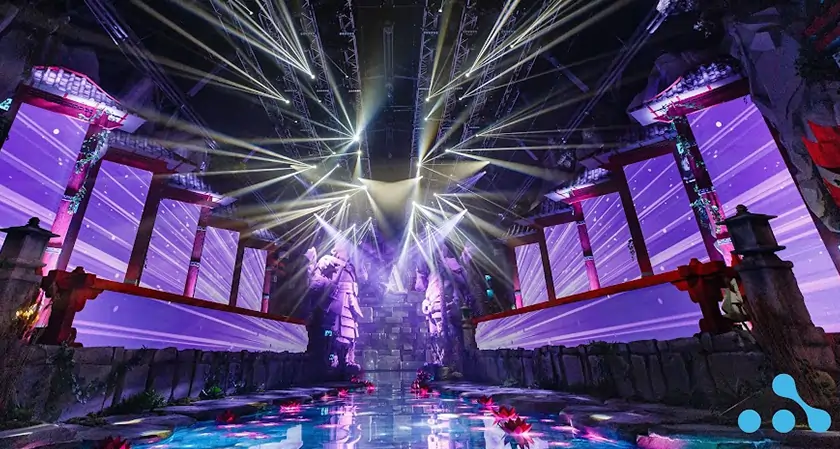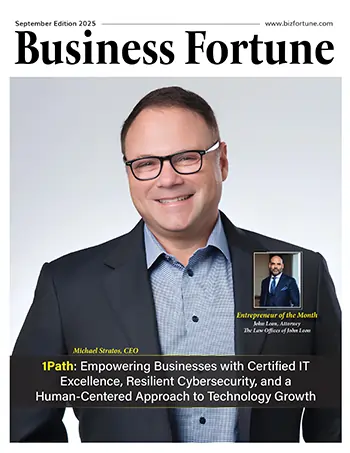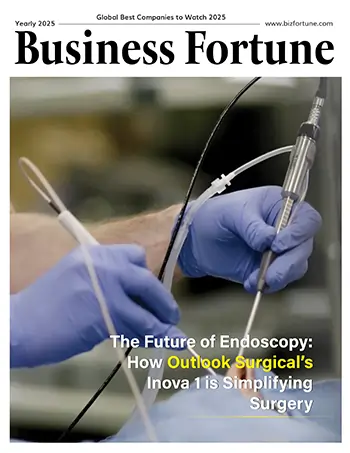Home Industry Gaming and VFX The mind behind the scenes: Wh...
The mind behind the scenes: Why esports needs great producers
Gaming and VFX

Business Fortune
17 June, 2025
Like the theater or film industries, gaming seems like an unattainable childhood dream. Getting there is like hitting the jackpot, which is guaranteed to happen to somebody but you. It's only half of the truth. While the path to esports doesn't always start with a top team or a high-profile tournament, the stories of those who have become part of this field prove that the industry is open to those who are passionate about their work, know how to learn, and are not afraid of challenges. Today, we got a chance to chit-chat with Nik Fert, a broadcast producer at WePlay Studios, and ask him to share his experience of getting into esports.
Hi! Thanks for taking the time to chat with us today. Let's start from the beginning. Why esports? What drew you to this world in the first place?
As a kid, I was deeply engaged with video games. I played a variety of titles, from RTS and fighting games to RPGs and racing simulators. But the turning point for me was discovering Warcraft III. That game changed everything.
I quickly became an avid fan not just of the game but of the entire lore. I bought comics, watched fan-made cinematic, and dived into this world. Naturally, when Dota 2 appeared and started shaping an esports' scene of a new kind, my hobby expanded into the industry. I followed every detail: teams, players, coaches, learning not just their nicknames but bios, full names, fun facts, etc. Watching countless broadcasts, I started to understand the nuances of production and the unique contributions of different TO's and studios in the market.
That was the moment I realized that this world isn't just fun. It's something I want to be a part of.
So, esports has clearly been your passion since childhood. However, correct me if I'm wrong. Just being a fan isn't always enough to break into the industry. What did it take to make that step from passion to profession?
You're absolutely right! Not everyone who loves movies ends up acting or working in Hollywood. I can say the exact same thing about esports, too. Passion is a great starting point. Nothing drives you to dive deeper into a subject like that childlike, energetic enthusiasm. Of course, with time, it needs to be paired with a more structured, systematic approach, because that's where growth happens.
As I mentioned, I started following esports events early on, paying close attention to production details like zoning, lighting, and overall stage design.
After high school, I got into filmmaking and experimenting with short films. I was also taking on editorial roles for gaming and esports websites, so I was already part of a production crew. That experience helped me later when I got into live broadcast production. It wasn't the same thing, but it gave me a solid foundation in storytelling, visual thinking, and teamwork.
A few years later, a good friend who knew about my passion for esports invited me to join WePlay as a GFX & Overlays Operator for their broadcast crew. At first, I didn't know much about working in production, but within just a few hours in the control room, I realized this was my dream job.
You joined WePlay as an Overlay Operator in 2018 and now work as a Broadcast Producer. How did you reach your dream job?
So, I have grown from GFX & Overlay Operator to Broadcast Producer. Sure, it didn't happen overnight. Starting my career at WePlay, I got into screenwriting, coordinating projects, creating content, and a bunch of other stuff. Every time I learn new skills, I find a place to put them into practice, and that's how I grow.
Now, the pool of my responsibilities is wider than back in the day. I'm in charge of calling the show, guiding the broadcast team and on-air talent, ensuring that the broadcast stays true to the original creative vision while making adjustments on the fly, and many other things. Most importantly, my main goal is to be a bridge between clients, stakeholders, and the broadcast crew. If any changes are requested during the show, I must ensure they're implemented smoothly without disrupting the flow.
There were no secret tricks to getting to where I'm now. Like in any field, you start by doing something — you practice, learn, and sharpen your skills. Step by step, you grow. You keep refining what you already know, dive deeper, and constantly look for new growth points. That's how you move toward your goal.
Your job seems a bit like maintaining structure in the middle of a chaotic flow. Maybe you could share a specific challenge that you and your team had to overcome?
In broadcast production, the golden rule is: always have a plan B for your plan B. No matter how well you prepare, changes are inevitable. This involves creating contingency plans early on and maintaining open communication with both the client and the team, so adjustments can happen without throwing everything off track.
One of the biggest recurring challenges in esports broadcasting is dealing with technical delays. Every team and player often has their own preferences for settings and equipment, which takes time to configure. On top of that, unexpected technical issues can pop up out of nowhere, delaying the whole event.
When this happens, the challenge is to keep the broadcast engaging without burning through all the content you’ve prepped for the entire event. That’s when you really need to think on your feet, be creative, and guide the talent team through some semi-improvisation moments.
For example, during the WePlay AniMajor, the game crashed because of a sudden update, and we were left with an hour to fill. The talent jumped into quick mini-games, interacted with Dota heroes through anime-style visual novel segments, and we even brought in players for live interviews. It all came down to staying calm, flexible, and making sure the show kept running — no matter what.

Breaking it down, what are the must-have skills for a broadcast producer in esports?
A Broadcast Producer is like a Swiss Army knife, yet this job has no one-size-fits-all manual. Every project can demand something completely different, and I see the role as the glue that holds everything together through all stages of production.
First and foremost, a broadcast producer needs a strong management mindset. You’re guiding the entire process, from building production pipelines and scheduling to crafting call sheets and the run of the show. It’s about aligning all moving parts into one cohesive plan that leads to a smooth, successful production.
A good producer also balances client expectations and creative vision, making sure the show keeps its identity. That means constant quality control. It’s about flow, ensuring each piece transitions naturally to the next, creating a comprehensive experience for both the audience and the stakeholders.
Live broadcasts are high-stress environments. So, whether it’s calming the team or making fast decisions, my job is to keep everything on track and everyone aligned. Remember: no stress, no drama. Stay calm and lead like everything’s running perfectly, even when it’s not.
Of course, the technical side matters, too. Understanding broadcast tools and software, like vMix, OBS Studio, Streamlabs, and VDO Ninja, is essential. You also need to understand how chaotic live production can be and how to work within that chaos without letting it overwhelm you.
What would you say if you could go back and talk to your younger self at the very beginning of your journey? What tips or insights could've helped you move forward faster?
Esports is an open, community-driven ecosystem, especially when it comes to careers. It thrives on relationships and connections, which often lead to exciting opportunities. Therefore, I would recommend investing in networking. Volunteering at online events, socializing in Discord and Reddit, and attending conferences are excellent ways to make acquaintances in the industry and follow all the trends.
If you're aiming for a specific role, such as an in-game observer, technical director, graphics operator, or producer, you'll need a more focused approach to building your skills. Hands-on practice is crucial because it gives you a sense of how things work in real-world scenarios and whether you enjoy the technical aspects of production. Some tools may seem unintuitive or complex initially, and it's important to assess whether you're still passionate about the role once you experience the technical demands.
Overall, if you enjoy the process, you'll gain confidence and clarity about your chosen path.


































